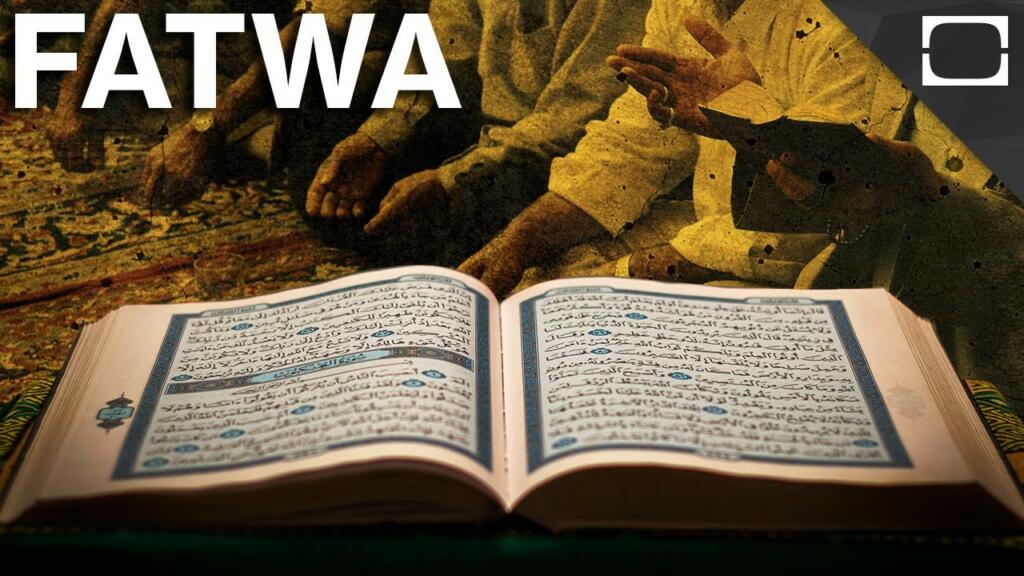What is a fatwa?: How many of you have read or heard about the Khilafat Movement? Well, the reference might have you believe that there is a caliphate that governs over all the Muslims of the world. The tall claims of the “Muslim world’ or ‘Muslim Brotherhood’ wish to do the same.
What is a fatwa? Definition: However, to your surprise, there is no central authority that controls the doctrine in Islam, one of the most-followed religions in the world. What is the result? Proliferation of bizarre religious edicts against targets ranging from Salman Rushdie and Sania Mirza to polio vaccinations
A fatwa instructs women not to shape their brows
You must be thinking, “Why are we suddenly talking about fatwas? Well, because Barielly’s Dargarh Ala Hazrat has issued a fatwa for Muslim women not to shape their eyebrows or don a haircut. The issued fatwas forbid Muslim youth from engaging in “non-Islamic’ acts of hiding their identities while getting into love affairs and marrying non-Muslim girls. In addition, the fatwa warns men against getting hair transplants. The decision regarding hair transplants and eyebrows comes from the claim of “an intrusion in the natural body” and is termed a practice against Sharia.
On Monday, Darul Uloom Deoband, one of the Islamic seminaries, issued a fatwa warning the students against trimming their beards. The order stated that any student who would trim or shave his beard would be ostracized from the institution. Earlier, fatwas had been issued against Muslim women and barred them from taking “unnecessary photographs” and uploading them on social media.
Also read: Fatwas and Death threats: Muslims seethe in anger as Waseem Rizvi converts to Hinduism
Some bizarre incidents involving Fatwa
Sania Mirza—all of us know her as one of the most prominent tennis stars that India has ever produced, with six Grand Slams and 47 titles to her name. However, her career was full of controversies, among which fatwas occupied the majority share. While she was at the top, around 2005, a fatwa was issued against her, saying that her dressing was indecent.
The fatwa had called her tennis skirt and shirts “unislamic” and “corrupting”. The same year at Wimbledon, she wore a t-shirt that proclaimed “Well-behaved women rarely make history”. Well, here the highlight is not Sania Mirza but the fatwa issued against her. But she is not the only one.
Iran’s supreme leader, Ayatollah Khomeini, issued a fatwa against Booker Prize winner Salman Rushdie in 1989, calling for Rushdie to be killed for insulting Islam in his novel, ‘The Satanic Verses’. As a result of this fatwa, Rushdie was forced to live in fear for his life for 33 years, until his fears came true. He was stabbed with a knife last year, due to which he lost an eye.
In 2007, it was reported that the parents of some 24,000 children had refused to allow government officials to administer polio drops, probably due to influential clerics having issued fatwas denouncing the campaign as a Western plot to sterilize Muslims.
Also read: Javed Akhtar shocks fundamentalists with statement on ‘Azaan Loudspeaker,’ but no Fatwa yet
Do fatwas have any constitutional validity?
For the past few minutes, all that we have talked about is the fatwa. But what is a fatwa? So, in the simplest of terms, a fatwa is a formal ruling or interpretation on a point of Islamic law given by a qualified legal scholar. In common languages, they are known as muftis, ulemas, or maulvis. Fatwas, in general, are issued in response to questions from individuals or Islamic courts.
It pops up in the news every now and then, and people often think of it as a decree, instruction, or order — or even something akin to a court farmaan. But what does our constitution say? As per the Union of India, fatwas are advisory in nature, and no Muslim is bound to follow them. Further, the organizations or clerics issuing fatwas do not administer criminal justice.
They function as an arbitrator, mediator, negotiator, or conciliator in matters pertaining to family disputes or any other dispute of a civil nature between Muslims. No power or authority can enforce any fatwa; hence, fatwas cannot be termed as either in conflict with or parallel to the Indian judicial system.
Although it is said that fatwas are not binding judgments, in Indian Muslim society, or any Muslim society, fatwas are issued by influential clerics and are considered authoritative. As all of us know, what is not enforceable in a court of law often finds enforcement through social setup. In the Indian political landscape, fatwas have been used as a political weapon, sometimes for outcasting someone from society and other times to render support of all Muslims to a politician or party.
In what could be a response to the increasing belief among the Muslim community, Syed Ahmad Bukhari, the Imam of Delhi’s Jama Masjid who is known for his election fatwas, has decided not to offer support to any political party in the 2019 Lok Sabha election. The incident was much talked about, as before this, it was quite common for imams and other Muslim clerics to decide electoral votes for the entire community.
Fatwas have even been issued to prohibit singing Vande Mataram, a song that holds high India’s sovereignty. Fatwas are a day-to-day affair, and when the menace will stop is difficult to say.
Support TFI:
Support us to strengthen the ‘Right’ ideology of cultural nationalism by purchasing the best quality garments from TFI-STORE.COM
